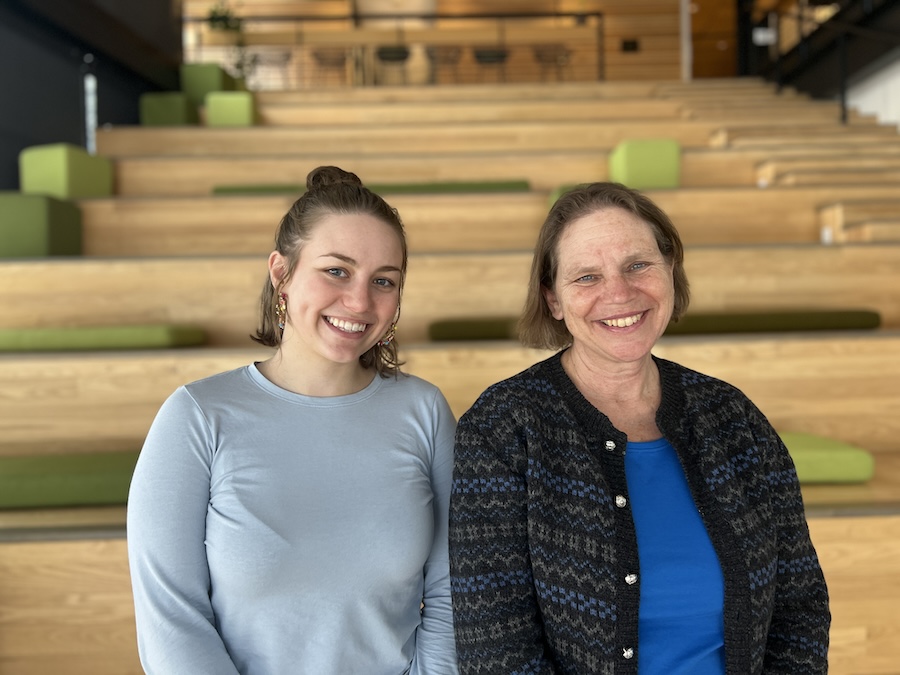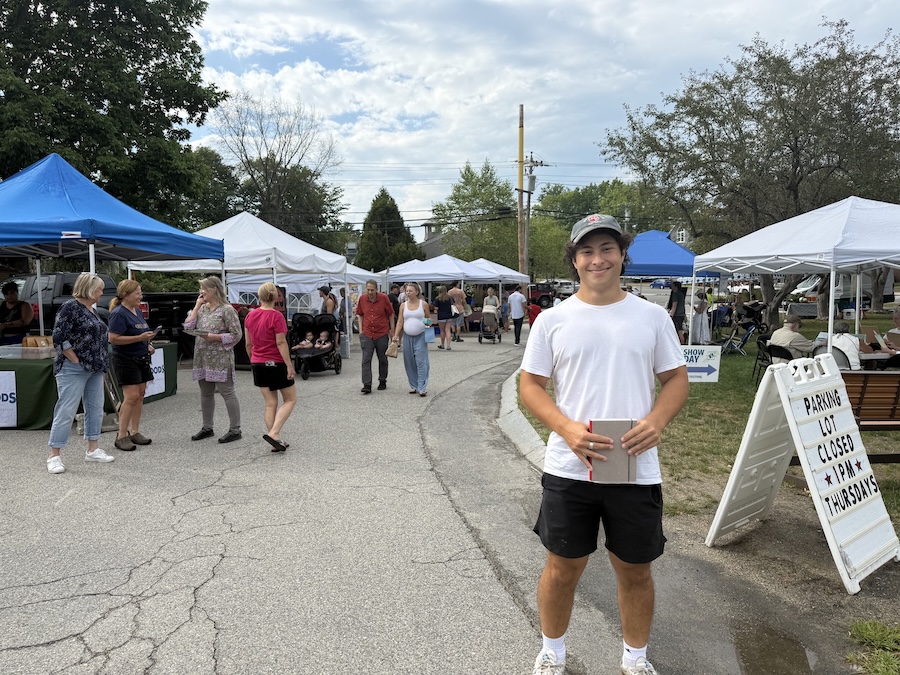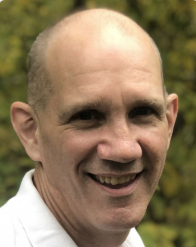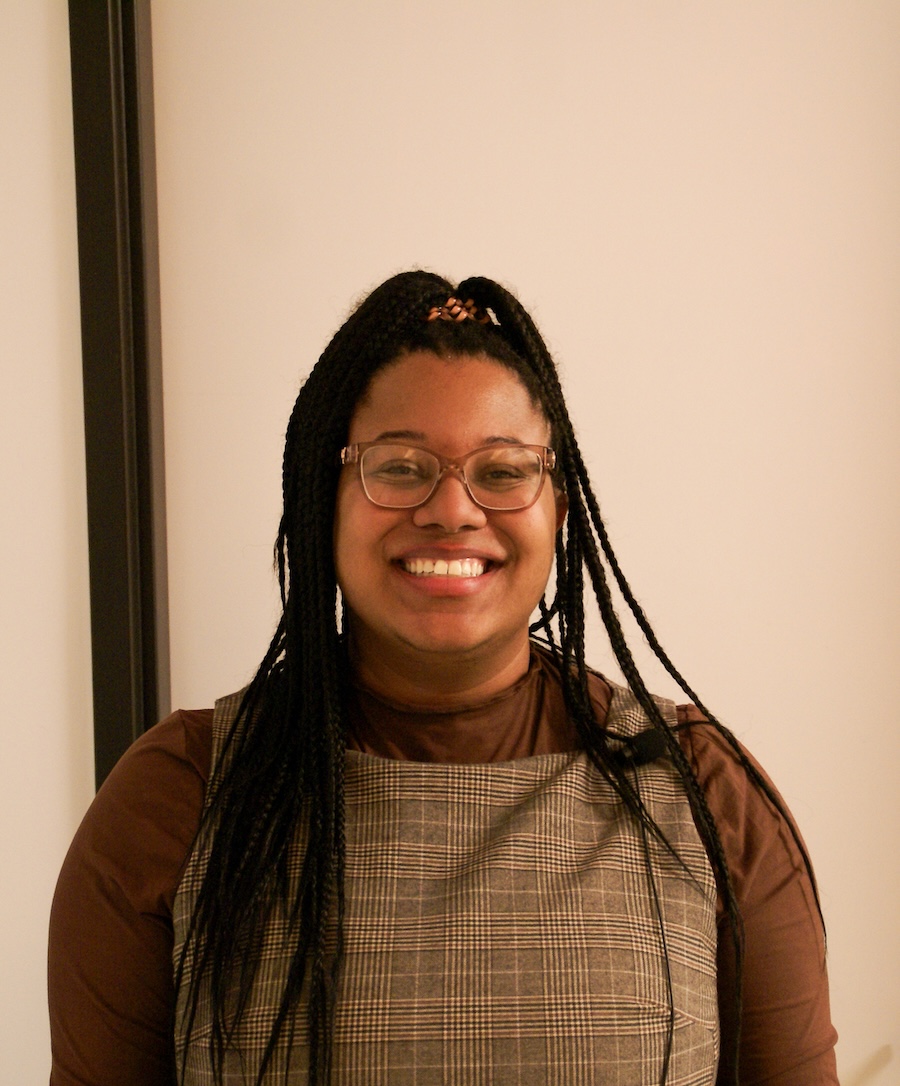Student and Professor Join State Efforts to Confront Climate Change
By Rebecca Goldfine
Last year, the two were appointed to the Community Resilience Working Group by the Maine Climate Council. The Council oversees several large working groups made up of scientists, industry leaders, local and state officials, and engaged citizens who are addressing areas impacted by climate change, such as buildings and infrastructure, the coast, energy, lands, transportation, and equity.
The Council, first established by Gov. Janet Mills in 2019, is in its second iteration, with a mandate to devise an updated state action plan by the end of the year. The first action plan, completed in 2020, led to initiatives to expand the number of heat pumps in homes, weatherize buildings, conserve land, green the power grid, create clean energy jobs, and increase the use of electric vehicles. Beckett Slayton ’21 served on a working group with first Council, along with Johnson.
Starting this past fall and continuing through the year, the Community Resilience Working Group is regularly meeting to develop proposals to present to the Climate Council for its for consideration in the next "Maine Won’t Wait" report. The report will be presented to state policymakers early next year.
"We want to focus not just on how communities mitigate the impacts of climate change but to make sure we have plans in place for when these big storms happen," Morrison said, of the community resilience working group's mission. "Now that we’re actually experiencing them, it’s one thing to understand the science of why they're happening, it's another thing to have clear goals and programs for when they do happen."
Morrison is the only youth representative in the Community Resilience Working Group. Other youth representatives are serving on the other groups.
It took Morrison a bit of time to adjust to her role in such a high-priority mission. "Even though it was daunting at first, with people who had so much experience and expertise, it feels like people genuinely want to hear from us [the youth reps] and value what we say," she said. "I kept reminding myself that I wouldn't be here if they didn't think I had something to contribute."
One of her teachers in high school, Leia Lowry, recommended Morrison to the working group last summer. Morrison, who is from Kennebunk, Maine, was deeply involved in environmental activism in her public high school. She also was an ambassador for The Climate Initiative, for which she participated in a series of community conversations about the impacts of sea-level rise on waterfront communities and the working waterfront.
So far, she has been an outspoken advocate in the monthly committee meetings for the need to consider not just the pressures on the physical hardiness of Maine communities, but also the psychological and emotional toll of climate change.
"In the conversations that I had with people in communities, I saw how emotional those conversations can get and how deeply feelings of hopelessness can creep into everyday life," Morrison said, describing how she often heard elderly people speak about their grief at seeing their homes and the places they had lived their entire lives disappearing before their eyes. "It is something that gets overlooked when we have big picture things to focus on."
Though Morrison had taken a class with Johnson at Bowdoin—Introduction to Environmental Studies (in which students read and discussed Maine's first climate action plan)—they were both surprised and pleased to discover in October that they were serving on the same working group together.
Besides the community resiliency working group, Johnson is also a member of the science and technical subcommittee and the equity subcommittee. She agreed that adding young people to these conversations is important.
"We can all be entrenched in the ways we think about things, so by bringing in different voices, we bring in a broader understanding of what to focus on," Johnson said. "I think it is important to have as wide a representation of people as possible."
Johnson was particularly struck by an anecdote Morrison shared at an earlier meeting, when she spoke about her yearning to have the same kind of memories as older residents in her home town.
Last summer in one of her community conversations, Morrison said that a Kennebunkport man in his eighties shared his memories of a beloved beach called Mother's Beach. (The beach was the first place Morrison's mother took her as a newborn after they left the hospital.)
The man described playing baseball with his friends during lunch breaks on the vast expanse of sand between the sea and sea wall. Over the years, as the ocean has risen, that strip of sand has become narrower. "He was showing me pictures and talking about how many memories he had created there, and how it was such an important place in his life. He had been feeling really emotional that it seems to be vanishing," she recalled.
This encounter prompted her to reflect on how she will likely miss out on sharing the beach with her own children. "It will be underwater when I have kids," she said, and "I thought how much I wanted to have the same memories as the man did or my mother did, and now I am not sure I will."
During the recent January downpour that devastated Maine's coast, a playground on Mother's Beach was demolished by the storm surge and the road became impassable to vehicles.
"It is great that man has those memories and pictures of how the beach was, but my kids will never know the beach that he grew up with," she said.



